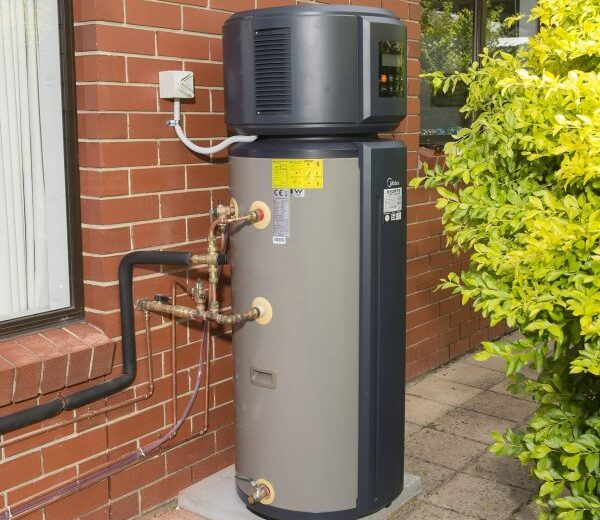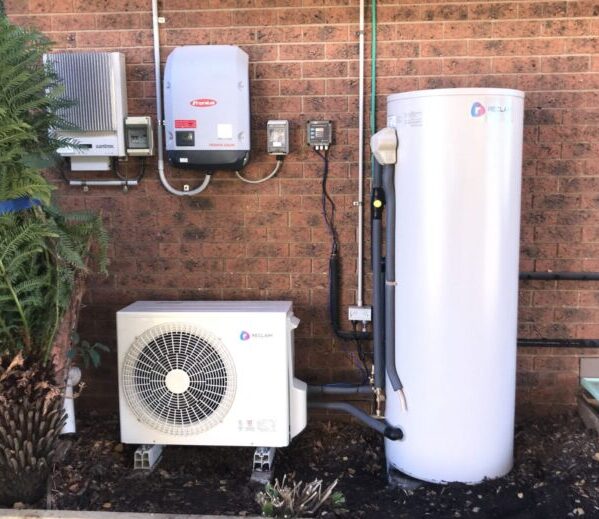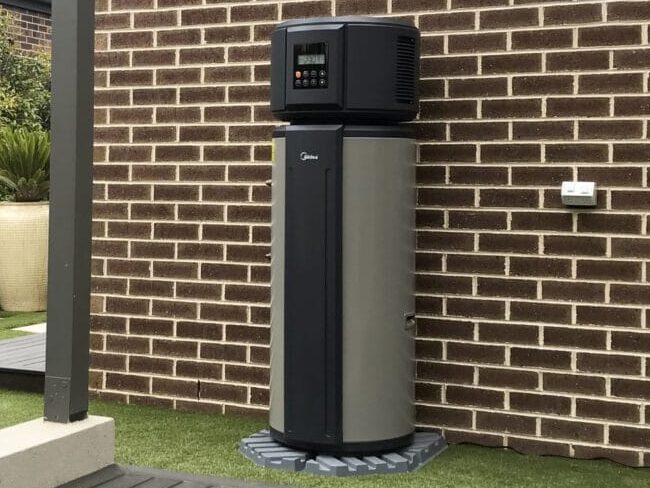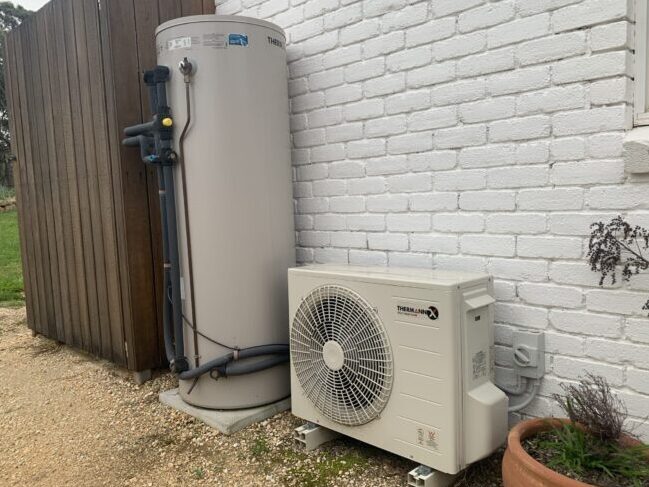Heating Pump Servicing
We work on all brands and types of heat pump hot water systems. Over the last 3 decades we have gained extensive knowledge in the field, earning us the reputation as a company that can offer you the solution to all your hot water needs. Call AMG Air Conditioning & Heating on 0419 297 331 today.
Heat Pump Hot Water Systems
Even the most reliable heat pump can encounter occasional issues, especially over time. We understand this, and offer comprehensive heat pump repairs and replacement services to keep your hot water flowing all year round.


Expert Repairs
Our skilled technicians can diagnose a wide range of heat pump issues, from minor malfunctions to more complex problems. They use their industry knowledge and expertise to repair your system quickly and efficiently, minimising disruption to your home.
Preventative Servicing
Regular maintenance is essential for extending the lifespan and maximising the efficiency of your heat pump. We offer preventative maintenance plans that include thorough cleaning, system checks, and adjustments to keep your system running smoothly and avoid potential problems down the road.
Our Heat Pump Servicing and Repairs
Our AMG Air, professional heat pump servicing is essential for ensuring that your heat pump system operates efficiently, has longevity, and continues to provide reliable heating and cooling. A properly serviced heat pump can improve energy efficiency, reduce operating costs, and prevent costly repairs down the line. Here’s what the AMG Air, professional heat pump service typically includes:
1. Inspection and System Check
- Refrigerant levels: Ensuring the refrigerant charge is adequate. Low refrigerant levels can indicate a leak or an issue with the compressor.
- Electrical components: Checking connections, terminals, and wiring for signs of wear or damage.
- Thermostat calibration: Verifying that the thermostat is working accurately and is properly set to control the system.
4. System Performance and Efficiency
- Airflow and temperature checks: Verifying that the heat pump is maintaining the correct temperature and airflow levels in both heating and cooling modes.
- Insulation check: Ensuring that all components, such as refrigerant lines, are properly insulated to prevent energy losses.
2. Cleaning and Maintenance
- Air filter cleaning/replacement: Dirty filters can reduce airflow, impair system efficiency, and reduce air quality. Filters should be cleaned or replaced regularly.
- Evaporator and condenser coils cleaning: Dirt and debris can accumulate on the coils, reducing heat transfer efficiency. A technician will clean both the evaporator and condenser coils.
- Blower fan inspection: Checking the blower fan and cleaning it to ensure proper airflow.
- Drain line check: Ensuring the condensate drain is clear and functioning properly to prevent water damage or mold growth.
5. System Controls and Safety Features
- Control board and settings check: Ensuring all settings are properly configured and the control board is functioning without issues.
- Safety checks: Ensuring that all safety features such as pressure relief valves and cutoff switches are functioning properly to prevent damage or hazards.
6. Lubrication
- Some moving parts, such as the fan and motors, may require lubrication to ensure smooth operation and reduce wear and tear.
3. Checking System Components
- Compressor: Inspecting the compressor to ensure it’s operating correctly, as it is one of the most critical components of the heat pump.
- Expansion valve or metering device: Ensuring the valve is working properly to regulate the flow of refrigerant.
- Defrost cycle test: Checking the system’s defrost cycle, which is essential for keeping the outdoor unit free from ice buildup in heating mode.
7. Seasonal Preparation
- Winterization or summer readiness: Depending on the season, the technician will ensure the heat pump is ready for either the heating season (if preparing for winter) or the cooling season (if preparing for summer).
Why Professional Servicing is Important
- Preventive maintenance: Regular servicing can prevent breakdowns and costly repairs by identifying potential issues early.
- Improved efficiency: Well-maintained heat pumps perform better, reducing energy consumption and lowering utility bills.
- Extended lifespan: Servicing your heat pump regularly can extend its life expectancy by preventing excessive wear on critical components.
- Safety: Professional servicing ensures your heat pump is operating safely, minimizing the risk of electrical or fire hazards.
What do Heat Pumps do?
Heat-pump hot water systems harness the principles of refrigeration cycles to extract heat from the surrounding air. This heat is then transferred to water within an insulated storage cylinder through a heat exchanger. The energy efficiency of these systems is impressive, consuming approximately 60 to 75% less electricity compared to conventional electric hot water systems. Unlike the direct heating mechanism employed by traditional electric systems, heat pumps employ electricity to power the heat pump itself, which then heats the water indirectly.
How Often Should You Service a Heat Pump?
Typically, heat pumps should be serviced at least once a year, ideally before the heating or cooling season begins. Some homeowners prefer to schedule both heating and cooling checks to ensure the system is optimized year-round. However, if you notice issues such as strange noises, uneven heating/cooling, or rising energy bills, it’s a good idea to have a professional inspect your heat pump sooner.
By maintaining your heat pump properly with professional servicing, you can maximize comfort, efficiency, and the longevity of your system.
Different Types of Heat Pumps

Integrated System
Integrated systems house the heat pump atop the storage cylinder, combining the evaporator, fan, compressor, and condenser. Although slightly bulkier due to their single-unit design, they offer a convenient option for efficient water heating.

Split System
Split systems segregate the evaporator, fan, and compressor within a distinct unit, connected to the storage cylinder through refrigerant piping. This arrangement mirrors the configuration of split system air conditioners; flexible installation and design.